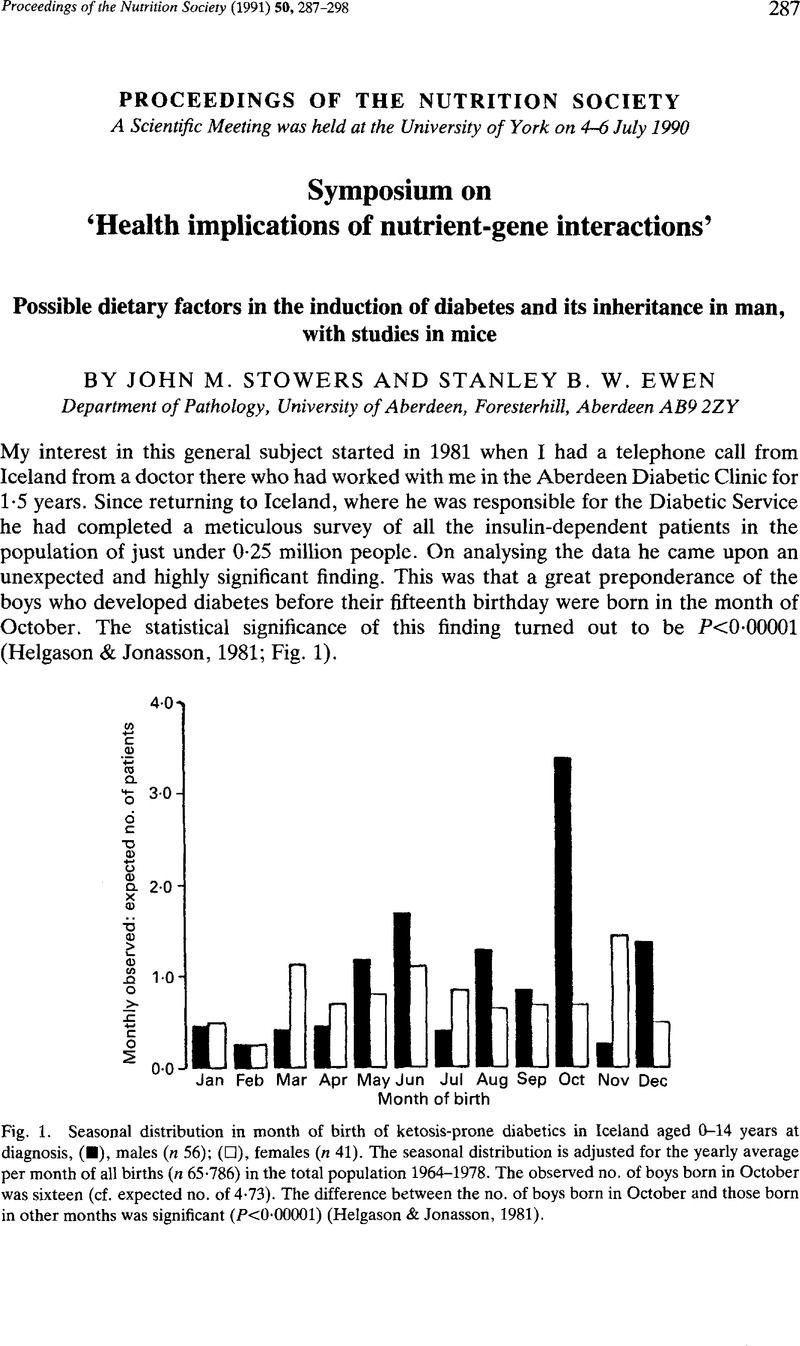Crossref Citations
This article has been cited by the following publications. This list is generated based on data provided by Crossref.
Helgason, T.
Danielsen, R.
and
Thorsson, A. V.
1992.
Incidence and prevalence of Type 1 (insulin-dependent) diabetes mellitus in Icelandic children 1970?1989.
Diabetologia,
Vol. 35,
Issue. 9,
p.
880.
Boucher, B. J.
Ewen, S. W. B.
and
Stowers, J. M.
1994.
Betel nut (Areca catechu) consumption and the induction of glucose intolerance in adult CD1 mice and in their F1 and F2 offspring.
Diabetologia,
Vol. 37,
Issue. 1,
p.
49.
Solomons, Noel W
and
Valdés-Ramos, Roxana
2002.
Dietary assessment tools for developing countries for use in multi-centric, collaborative protocols.
Public Health Nutrition,
Vol. 5,
Issue. 6a,
p.
955.
Lean, M E J
2010.
Childhood obesity: time to shrink a parent.
International Journal of Obesity,
Vol. 34,
Issue. 1,
p.
1.
Hsieh, Tusty-Jiuan
Hsieh, Pei-Chen
Wu, Ming-Tsang
Chang, Wei-Chiao
Hsiao, Pi-Jung
Lin, Kun-Der
Chou, Pong-Chun
and
Shin, Shyi-Jang
2011.
Betel nut extract and arecoline block insulin signaling and lipid storage in 3T3-L1 adipocytes.
Cell Biology and Toxicology,
Vol. 27,
Issue. 6,
p.
397.



